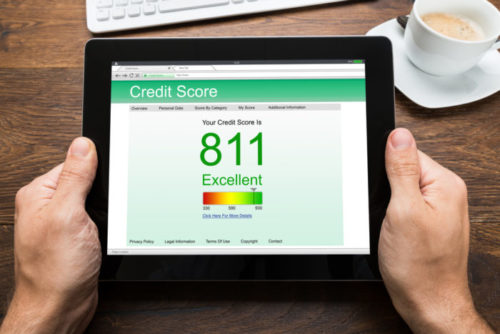The average FICO score in the United States hit a record high of 703 in 2019. While this is a very healthy credit score number, it still falls on the lower end of the “good credit” range of the FICO scoring model. Since it’s an average, this number indicates that there are still many individuals who are suffering under the weight of significantly lower credit scores.
If you’re one of those who have poor credit, you may be looking for ways to fix your credit score. You can go about repairing your credit in one of two ways.
- You can hire a credit repair company that will professionally review your credit history and dispute any mistakes on your credit report.
- You can conduct your credit repair on your own and avoid the costs of hiring professionals.
If you opt for the latter option, it’s important to realize the work that goes into fixing your credit score for free.
Table of Contents
Get a Copy of Your Credit Report
If you want to repair your credit on your own, the first thing that you’re going to need to do is to request a copy of your credit report from each of the three credit bureaus.
You can do this by visiting AnnualCreditReport.com to request the reports. U.S. citizens are legally guaranteed one free credit report per year, so you should be able to request the reports without any issues.
Review Your Credit Report
Once you receive your three credit reports, it’s time to carefully review each one. Look for any items within the report that you are absolutely certain have been made in error. Note that this isn’t the time to challenge something just because you can’t remember the details.
You should only be looking for genuine errors on your report, such as a mistake in your personal information or identity theft. Errors are rare, so if you think you’ve spotted one, make sure to compare it against your other banking or billing documents to be sure.
Dispute Inquiries With Each Credit Bureau
If you find an error on one of your credit reports, the next step is to formally dispute the mistake. First, compare the error to the other two reports to see if you need to file multiple disputes. If the error only appears on one report, you can send a dispute letter to that credit bureau.
Before you do so, though, make sure to identify all errors that you can. Don’t try to dispute them all at once. Instead, dispute one error at a time, prioritizing the most important ones first. (If any of them are close to seven years old you can leave them alone, as they’ll be removed from your report soon anyway.)
Be aware that you’ll need to prove that you are correct in your dispute letter. With that in mind, make sure to:
- Clearly describe the inaccuracy.
- Explain why it’s inaccurate.
- Include your account number from your credit report.
In addition, you’ll likely need to gather any other paperwork that may be required to prove your case. This could include but is not limited to:
- A bill or statement to prove your identity.
- Statements from lenders or creditors.
- Copies of checks, bank statements, court documents, or even a police report.
The documents you need will depend on your scenario. Regardless of the specifics, be prepared to hunt them down and provide them, or your dispute likely won’t succeed and you’ll be forced to start over.
When you go to send your dispute letter you can do so through an online portal on the credit bureau’s website, by telephone, or by snail mail. Again, make sure that you’re using the correct process depending on if you’re sending a letter to Equifax, Experian, or TransUnion.
It should take roughly 30 days to hear back regarding your dispute. In the meantime, you can begin to work on other ways to repair your credit.
Building Your Credit, Fix Your Financial Health
While disputing an error on your credit report is important in the short term, the best long-term solution to bad credit is to fix your financial health and behavior. A few suggestions for ways to begin implementing a more permanent change include:
- Paying your bills consistently and on time.
- Creating a budget and sticking to it.
- Paying down credit card balances using the snowball or avalanche methods.
- Avoiding taking out new lines of credit.
- Keeping unused credit card accounts open and unused to keep your credit utilization ratio higher.
An error on a credit report shouldn’t hamper your financial activity for more than a decade. However, if you can firmly adopt deep-rooted, healthy financial habits, they will continue to serve you for the rest of your life.
Image Source: https://depositphotos.com/





